Search Results
Showing results 21 to 40 of 203
Magic Wand Creations
Source Institutions
This is an activity in which learners create magic wands from a variety of materials making their choices by considering what kind of magic they want to make.
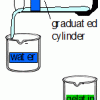
Natural Buffers
Source Institutions
Learners use a universal indicator to test the amount of sodium hydroxide needed to change the pH of plain water compared with the amount needed to change the pH of gelatin.
Egg Osmosis
Source Institutions
Visitors observe three beakers. One beaker contains an egg immersed in vinegar. Visitors observe carbon dioxide gas escaping from the shell as the calcium carbonate reacts with the vinegar.
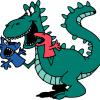
Dinosaur Sock Puppet
Source Institutions
In this activity about dinosaurs, learners first participate in a group discussion about where and when dinosaurs lived, how big they were, and who studies them and how.
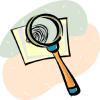
Fingerprint Identification
Source Institutions
In this activity (on page 2) about fingerprint analysis, learners use graphite from a pencil and scotch tape to capture their fingerprints.
Hot and Cold: Endothermic and Exothermic Reactions
Source Institutions
Visitors mix urea with water in one flask and mix calcium chloride with water in another flask. They observe that the urea flask gets cold and the calcium chloride flask gets hot.
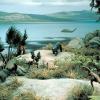
Dinosaur Homes
Source Institutions
In this activity about dinosaurs and survival, learners use scrap materials to create a miniature dinosaur habitat that includes a food source, water source, and shelter.
Yeast Balloons
Source Institutions
Visitors observe a bottle with a balloon attached around the mouth. The bottle contains a solution of yeast, sugar, and water.
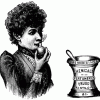
Common Scents
Source Institutions
Learners use a mortar and pestle to extract clove oil from cloves using denatured alcohol. They put this oil on paper, which they can take home.
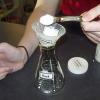
Hot and Cold
Source Institutions
In this activity, learners explore temperature changes from chemical reactions by mixing urea with water in one flask and mixing calcium chloride with water in another flask.
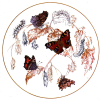
Butterfly Symmetry Painting
Source Institutions
This activity (on page 3 of the PDF) has learners create models of butterfly wings.
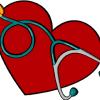
Stethoscope
Source Institutions
Make a copy of the first stethoscope with only a cardboard tube! René Laennec invented the first stethoscope in 1819 using an actual paper tube!
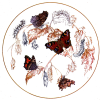
Build a Bug
Source Institutions
In this activity (on page 2 of the PDF), learners use art supplies to build models of insects, both real or imagined.
It's A Gas!
Source Institutions
Visitors mix water and sodium bicarbonate (baking soda) in a large flask. They then add citric acid to the mixture and stopper the flask. The resulting reaction creates carbon dioxide gas.
All Mixed Up!: Separating Mixtures
Source Institutions
Visitors separate a mixture of pebbles, salt crystals, and wood shavings by adding water and pouring the mixture through a strainer.

Density Rainbow
Source Institutions
In this activity, learners mix several sugar solutions to investigate the property of density. Each sugar solution has a different density and color of the rainbow.
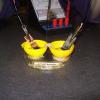
Build a Battery
Source Institutions
Learners build a simple one-cell battery and use an ammeter to measure the flow of current.
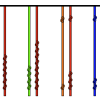
Quipus
Source Institutions
Learners create an Incan counting device called a quipu (pronounced kee-poo).
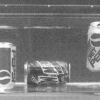
Sink or Swim?
Source Institutions
Learners observe a tank of water containing cans of diet and regular sodas. The diet sodas float and the regular sodas sink. All the cans contain the same amount of liquid and the same amount of air.

Layered Liquids: Chemistry You Can Drink
Source Institutions
In this chemistry activity (on page 2 of the PDF), learners make a layered drink with liquids of different densities.
